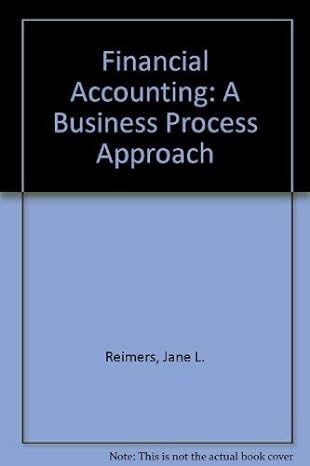Answered step by step
Verified Expert Solution
Question
1 Approved Answer
Return to question Campbell, a single taxpayer, earns $400,000 in taxable income and $2,000 in interest from an investment in State of New York bonds
Return to question Campbell, a single taxpayer, earns $400,000 in taxable income and $2,000 in interest from an investment in State of New York bonds (Use the U.S. tax rate schedule) Required: a. How much federal tax will she owe? b. What is her average tax rate? c. What is her effective tax rate? d. What is her current marginal tax rate? Answer is not complete. Complete this question by entering your answers in the tabs below. Required A Required B Required C Required D How much federal tax will she owe? Note: Do not round intermediate calculations. Round "Federal tax" to the nearest dollar. Federal tax < Prev 3 of 21 Next > b. What is her average tax rate? c. What is her effective tax rate? d. What is her current marginal tax rate? Answer is not complete. Complete this question by entering your answers in the tabs below. Required A Required B Required C Required D What is her average tax rate? Note: Do not round intermediate calculations. Round total tax to the nearest dollar. Choose Numerator Total tax = Average Tax Rate. Choose Denominator + Taxable income S 400,000 < Required A Required C > Return to q a. How much federal tax will she owe? b. What is her average tax rate? c. What is her effective tax rate? d. What is her current marginal tax rate? Answer is not complete. Complete this question by entering your answers in the tabs below. Required A Required B Required C Required D Required C What is her effective tax rate? Note: Do not round intermediate calculations. Round total tax to the nearest dollar. Choose Numerator Total tax Choose Denominator Total income = Effective Tax Rate S 402.000 Prev 3 of 21 Nort Return to 2022 Tax Rate Schedules Individuals Schedule X-Single If taxable income is over: But not over: $ 0 $ 10,275 $ 41,775 $ 89,075 $ 170,050 $ 215,950 $539,900 $ 10,275 $ 41,775 $ 89,075 $ 170,050 $ 215,950 $539,900 The tax is: 10% of taxable income $1,027.50 plus 12% of the excess over $10,275 $4,807.50 plus 22% of the excess over $41,775 $15,213.50 plus 24% of the excess over $89,075 $34,647.50 plus 32% of the excess over $170,050 $49,335.50 plus 35% of the excess over $215,950 $162,718 plus 37% of the excess over $539,900 Schedule Y-1-Married Filing Jointly or Qualifying Widow(er) If taxable income is over: But not over: $ 0 $ 20,550 The tax is: 10% of taxable income $ 20,550 $ 83.550 $2.055 plus 12% of the excess over $20.550
Step by Step Solution
There are 3 Steps involved in it
Step: 1

Get Instant Access to Expert-Tailored Solutions
See step-by-step solutions with expert insights and AI powered tools for academic success
Step: 2

Step: 3

Ace Your Homework with AI
Get the answers you need in no time with our AI-driven, step-by-step assistance
Get Started


